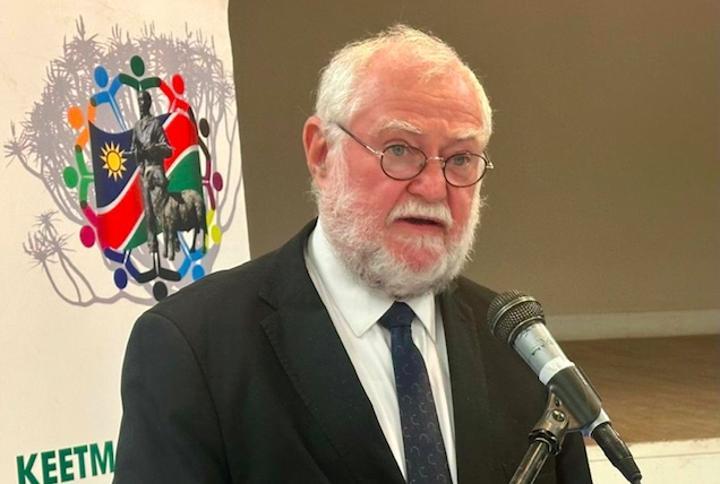Africa-Press – Namibia. FORMER finance minister Calle Schlettwein says Namibia’s recent downgrade by the World Bank from an upper middle-income country to a lower middle-income country is a clear indication that the country is becoming poorer.
The World Bank last week released its annual income classifications, which showed Namibia’s gross national income (GNI) per capita has fallen below the threshold required to maintain upper middle-income status.
Reacting to the development, Schlettwein said the downgrade reflects deeper economic challenges, including slow growth and increasing poverty.
“Our per capita income has dropped. Our economy is growing slower than the population. We are not creating wealth, and that means we are becoming poorer. The individual income, our per capita income, is lower than it was before,” Schlettwein told The Namibian yesterday.
He attributed the reclassification to several years of weak economic performance, during which Namibia struggled to generate consistent growth.
“This classification has to do with a period of no economic growth that we have experienced,” he said.
Schlettwein said the change in status would, however, not significantly impact the country’s access to international financing.
“We are still a middle-income country, and therefore our borrowing and access to finance will not improve. Unfortunately, it’s not a good thing. We gain nothing from it. It only means we need to stimulate growth more than we have done up to now,” he said.
Schlettwein expressed cautious optimism, citing recent oil discoveries and green hydrogen projects as opportunities to boost economic performance in the coming years.
He stressed the need for inclusive growth and a more equitable distribution of wealth. “We need to do two things: We have to grow our economy faster, and we have to share wealth better,” Schlettwein said.
“Our economy must become bigger, and that bigger economy must be shared more fairly.”
Namibia had held upper middle-income status since 2009.
However, persistent inequality, high unemployment, and limited fiscal space have made it difficult to sustain that classification.
The downgrade adds pressure on the government to implement reforms and stimulate economic activity that benefits all Namibians.
According to the World Bank Group’s income classifications for the 2026 financial year, Namibia has been reclassified from an upper middle-income country to a lower middle-income country.
Namibia was the only country of which the classification moved downward this year, the World Bank said.
The reclassification comes despite Namibia’s gross domestic product (GDP) growing by 3.7% in 2024, a 0.7-point deceleration from 2023. According to the institution, inflation (based on the GDP deflator) slowed from 6.6% in 2023 to 3.3% in 2024.
“One of the main factors behind the slower GDP growth was a sharp deceleration in mining and quarrying, for which growth went from +19.3% in 2023 to -1.2% in 2024 due to weak demand for diamonds,” online publication Blogs says.
Furthermore, population data was adjusted upwards by the United Nations Population Division with a 13.8% increase for 2023, leading to a 12.9% decrease in the Atlas GNI per capita, impacting the country’s income classification.
Every year, the World Bank Group classifies the world’s economies into four income groups: low, lower-middle, upper-middle, and high.
These classifications, updated each year on 1 July, are based on the previous year’s GNI per capita, expressed in United States dollars using the Atlas method.
In 2023, former president Hage Geingob told the United Nations General Assembly in New York that Namibia continues to be “unfairly” classified as an upper middle-income country because of its high per-capita income.
He said taking the small population of Namibia, divided by its gross domestic product, and arriving at a high per capita income is not a good measurement.
“It does not reflect the reality of the past colonial injustices in Namibia where the white minority oppressed the black majority,” Geingob said.
For More News And Analysis About Namibia Follow Africa-Press






